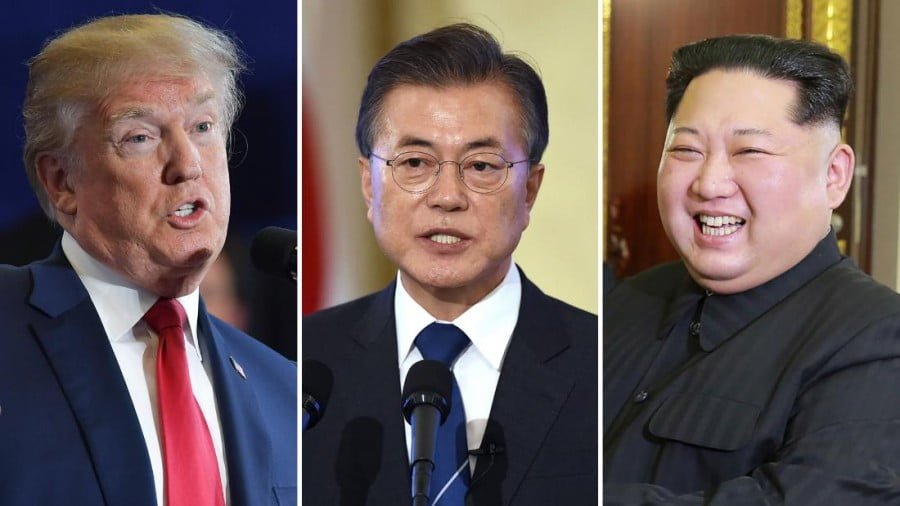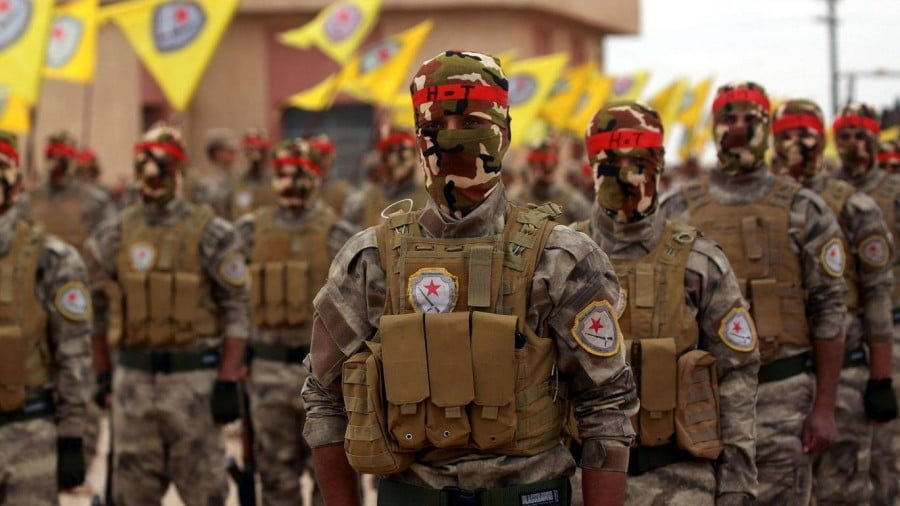When North Meets South: What’s at Stake as Two Koreas Sit Down?
President Donald Trump has said he will walk out of the room if things do not go well with North Korea. South Korean President Moon Jae-in wishes he had that option in his own summit with North Korean leader Kim Jong-un this week.
“I think Moon’s whole career is focused on trying to transform the environment from one of conflict to peace and this summit is critical to that,” said Bruce W. Bennett, an expert in Northeast Asian military issues with the RAND Corporation.
Moon has made rapprochement with the regime the most important policy of his young presidency, and he will have much at stake when he arrives at the Freedom House on the southern side of the Demilitarised Zone (DMZ) on Friday to meet his North Korean counterpart, who, in turn, may have put his own life at stake.
Despite the gathering storm clouds, Bennett is hopeful. “Moon does not have the option of walking away, but the meetings before the summit have gone pretty well, so [many] of the agreements already exist and only need to be ratified”.
This would presumably include Moon’s announcement on Thursday that – in addition to halting its weapons programmes and acceding to US-South Korea joint military drills – North Korea will no longer demand a US withdrawal from South Korea as a precondition for denuclearisation. Another recent agreement expected to be formalised at the summit is the conclusion of the armistice and official ending of the Korean war.
Moon’s summit therefore marks the closest the two countries have come since the days of the Sunshine Policy (1998-2008), an approach of open dialogue with the regime that conservatives say failed because it conceded over US$3 billion in exchange for North Korea’s promise not to start a war.
While some see Moon’s summit as simply paving the way for Trump, Bennett said the South’s president wanted to make his meeting the “big one” – especially as he has already conceded much to that end, such as promising not to talk about human rights.
“That’s a pretty big commitment by the South Korean government, when pretty much everybody knows that to have real peace you have to get the North Korean human rights situation under control.”
But since Moon has no intention of this being a one-time event, Bennett said the president could focus on atmospherics and hammer out the logistics of denuclearisation over the coming months or years.
Under such conditions, he said “the summit could fail, but I don’t think it’s likely”.
However, even a successful summit could be problematic for Moon, who is already considered pro-North by his political adversaries, and who may therefore find that his biggest challenge ahead lies not in negotiating with Pyongyang but in convincing his opponents, and a growing segment of the public, that he’s the one to do so. His approval rating has already fallen from 88 per cent in the first weeks of his presidency to 66.8 per cent at present.
“Political careers in South Korea tend to be pretty short-lived anyway,” said Steven Weber, professor of political science at UC Berkeley and a North Korea expert. But in light of an upcoming Trump-Kim summit, Weber said not going ahead with it could make Moon appear to be the worst thing a politician can be – irrelevant.
The Moon-Kim summit also offers a chance to deal with a number of small, instrumental matters such as border regulation or enterprise zones, which could be used to signal progress while denuclearisation is blocked off as a separate issue. But even achieving this will be a challenge, Weber said. “When it comes to Iran, Trump’s people don’t want the nuclear issue separated from other issues. So they’re seen as connected issues”.
Even being the black box that it is, Pyongyang has given the world some reason for hope. After Kim announced in January his desire to join the Pyongyang Winter Olympics, his sister became the first member of the Kim dynasty to enter South Korea since the war, attending the opening ceremony of the Games and delivering Kim’s invitation to Moon for a summit. Kim also made his first international trip since taking office to visit President Xi Jinping and recently met CIA head Mike Pompeo to set the table for his upcoming meeting with Trump.
But this flurry of activity has not persuaded everyone. Robert Kelly, professor of political science at Pusan National University, wrote in The Interpreter last week that a successful Moon-Kim summit was a big ask and to pull it off, Moon must stay on topic. This means economic cooperation and human rights must take a back seat to either shutting down the weapons programme or establishing an Iran-like deal that would grant access to third-party observers.
Kelly said the only certainty so far was that the North had shown no genuine interest in changing.
As such, Kelly said it was unlikely Moon would be able to negotiate without Trump – whom the professor doubts will have much sway either.
“Does anyone really believe a reality TV star who doesn’t read, watches five hours of TV a day, and relies more on family and friends than technical staff is qualified to negotiate these sorts of questions in just eight weeks?” Kelly wrote last month on Asian Security Blog. “Wake up, everybody.”
Expecting an unsuccessful result from both summits, Kelly warned the notoriously unpredictable US leader could conclude that diplomacy had failed and war was the only answer. “The best move,” he concluded, “is just to cancel it”.
But the prospect of Trump ditching the much-anticipated summit with Kim is unlikely. “Meeting went very smoothly and a good relationship was formed,” Trump tweeted regarding CIA director Mike Pompeo’s trip to the North. “Details of summit are being worked out now. Denuclearisation will be a great thing for world, but also for North Korea!”
If nothing else, the Moon-Kim summit may not be a game-changer, but could pave the way for progress with Trump. “The former summits did not produce concrete results,” said Kang Won-taek, professor of political science at Seoul National University. “But the US summit is next and the sanctions still hold, so I’m fairly optimistic this time,” Kang said, noting the US and Trump’s “positive attitude”.
So if Moon can navigate what Kim, Trump and his own people hope to see from next week’s summit, he may at least lay the groundwork for those to come. “It reminds me a little of Reagan’s meeting with Gorbachev at Reykjavik [in 1985],” Weber said of the Trump-Kim summit. “Foreign-policy folks hate leaders going into a room like that, cause what if they come out saying something crazy? They did come out of Reykjavik saying something crazy, but it wasn’t the end of the world. So I’m glad this is happening. This relationship has been stuck for 25 years, and now it’s unstuck, there’s motion.”







